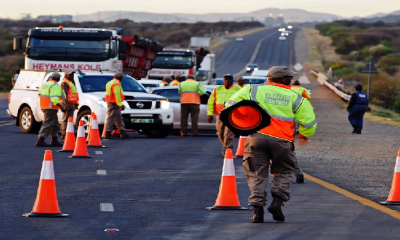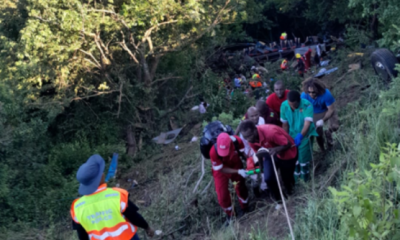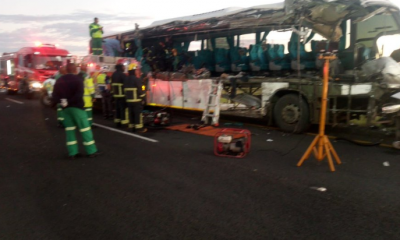411
RTMC Responds to AA’s Annual Roadworthiness Test Proposal

South Africa’s Road Traffic Management Corporation (RTMC) has held back on commenting on a proposal by the Automobile Association (AA) to mandate annual roadworthiness tests for all vehicles as part of licence disc renewals, saying it has not yet reviewed a formal proposal.
The AA’s call, made in January 2025 by CEO Bobby Ramagwede, comes in response to worsening road safety stats. During the 2024/25 festive season alone, 1,502 deaths were recorded on South African roads — a 5.3% increase compared to the previous year.
The Proposal: Roadworthiness Linked to Licence Disc Renewal
Ramagwede’s solution? Tie roadworthiness checks directly to the annual vehicle licence renewal process.
“Every year, motorists have to update their vehicle licence discs. Part and parcel of that update should be a roadworthiness test, otherwise your vehicle is not legal for road use,” said Ramagwede.
He argued that focusing solely on driver behaviour — the primary cause of road deaths according to Transport Minister Barbara Creecy — ignores the significant role of vehicle condition and mechanical failures.
Creecy had also reported that 16,527 vehicles were deemed unroadworthy during festive season checks, prompting Ramagwede to question whether roadblocks are enough to catch unsafe vehicles.
RTMC: Awaiting the Full Picture
When asked for comment, RTMC spokesperson Simon Zwane said:
“We have not seen the details of this proposal. It will be appropriate for us to study and understand the details of the proposal and its full policy and operational implications before we can take a position.”
Implementing such a change would require standardising roadworthiness tests nationwide and likely amending existing legislation — a process with significant financial and logistical implications for both government and motorists.
Criticism: No Data to Support the Proposal
However, not everyone agrees with the AA’s approach. Rob Handfield-Jones, managing director at Driving.co.za, dismissed the proposal as “fundamentally flawed.”
He cited national crash data between 2015 and 2023, arguing there’s no correlation between the number of unroadworthy vehicles and fatal accidents.
“The relationship between vehicle factors and fatal crashes has been broadly inverse over time,” he said.
“In other words, more unroadworthy vehicles did not lead to more fatal crashes — in fact, the opposite.”
According to Handfield-Jones, the percentage of fatal crashes caused by mechanical faults has dropped over the years, while other causes such as speeding, reckless driving, and alcohol remain dominant.
He also noted that certain vehicle categories — like buses, trucks, and minibus taxis — already undergo regular roadworthiness checks, yet still reflect concerning accident rates.
A Costly and Complex Debate
Ramagwede maintains that routine inspections would remove unsafe vehicles from the road before they cause harm. Critics argue that such checks would burden compliant drivers, inflate maintenance costs, and offer little in terms of road safety gains.
With the RTMC yet to take a firm stance, and the Department of Transport facing pressure to curb road deaths, the debate over how best to improve safety on South Africa’s roads is far from over.
Road Safety vs Practicality
While annual roadworthiness tests for licence disc renewals could, in theory, improve safety, experts remain divided on whether they address the real causes of fatal accidents. Until a full policy proposal is released and evaluated, the idea remains just that — a proposal.
Will South Africa follow through, or pump the brakes? Time — and the data — will tell.
{Source MyBroadBand}
Follow Joburg ETC on Facebook, Twitter , TikTok and Instagram
For more News in Johannesburg, visit joburgetc.com






















